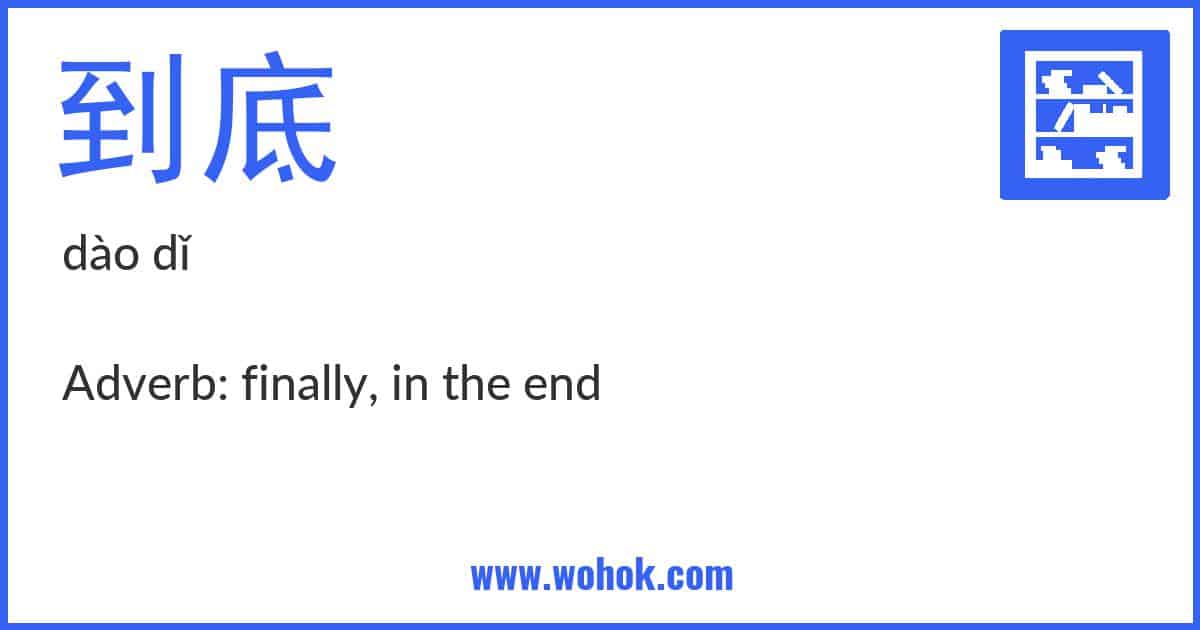The Chinese word 到底 is an adverb that is commonly used to express a sense of urgency or emphasis in a question, often translated as “in the end” or “after all”. It is used to seek a definitive answer or to express frustration or impatience. For example, “你到底想吃什么?” translates to “What do you want to eat after all?” or “What do you really want to eat?”
Translation
Adverb: finally, in the end
Pronunciation
Example Sentences
| Chinese | Pinyin | Engish |
|---|---|---|
| 他到底是谁? | tā dàodǐ shì shéi? | Who is he exactly? |
| 我到底做错了什么? | wǒ dàodǐ zuò cuòle shénme? | What did I do wrong exactly? |
| 你到底要不要去? | nǐ dàodǐ yào bùyào qù? | Are you going or not? |
| 这件事到底是怎么回事? | zhè jiàn shì dàodǐ shì zěnme huíshì? | What exactly happened in this matter? |
| 他到底有多聪明? | tā dàodǐ yǒu duō cōngming? | How intelligent is he exactly? |
| 你到底想干什么? | nǐ dàodǐ xiǎng gàn shénme? | What exactly do you want to do? |
| 这个问题到底该怎么解决? | zhège wèntí dàodǐ gāi zěnme jiějué? | How should we exactly solve this problem? |
| 他到底在哪里? | tā dàodǐ zài nǎlǐ? | Where exactly is he? |
HSK
到底 is part of HSK Level 4 in HSK 2.0. In the newer HSK 3.0 it is part of HSK Level 3.
Learning Card


